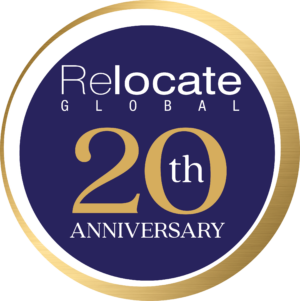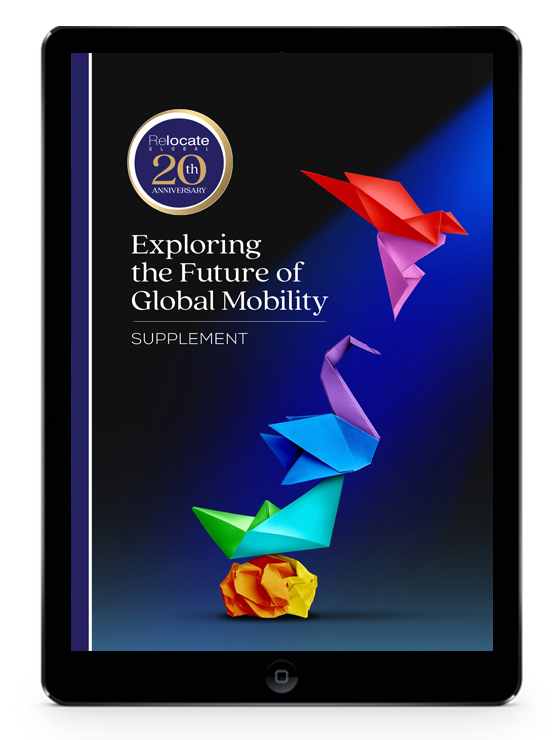What your staff want you to know about remote working
As companies are increasingly required to demonstrate that they are working towards their environmental, social and governance (ESG) goals, providing greater access to work for a more diverse range of applicants can be seen as a step towards fulfilling EGS criteria.
But how do you make hybrid working fair when job roles can be so varied and not every role can be managed remotely? Marianne Curphey examines the options.
Remote work policies can help to solve the talent crisis, bring in fresh and independent thinking and widen diversity. They can also lead to increased employment rates for people with disabilities, those who have caring responsibilities, are neurodivergent or have specific requirements, or who want to have an improved work-life balance. For companies looking to increase their diversity, equity and inclusion (DE&I), supporting hybrid working can be an important tool.
Yet while many companies with global brands and employees in locations around the world have embraced the remote working opportunity, others have begun to encourage or mandate that staff should return to the office. Google has asked staff to return to face to face working three days a week, while Salesforce is trying to persuade employees back to the office with a promise to make charitable donations for each office attendance. This is at odds with companies like Spotify, which has chosen to embrace fully the new working freedoms that came with the pandemic.
“In a skills-short market, it’s important that employers dedicate time to their talent attraction and retention strategies, and acknowledge what professionals prioritise most today,” says Yvonne Smyth, director at Hays specialising in HR. “According to our 2023 Salary Guide, the majority of employees (85%) believe an organisation’s purpose is important when considering a new role, so employers ought to clarify and communicate their purpose throughout the recruitment process and beyond.”
She says one of the key considerations for attracting and retaining talent today is flexibility.
“Our latest research shows that over half (56%) of professionals say their preferred way of working is hybrid. Flexitime is similarly appealing for employees today, as 76% would be tempted to move to an organisation that offered greater autonomy in the hours they choose to work.”
Related reading from our sister website Relocate Global
- How to avoid the legal and financial pitfalls of remote working and overseas assignments
- Women professionals get hybrid working boost
- The Flex Factor: a dynamic approach to global mobility policy
Should you let your staff work anywhere, any time?
The champions of remote working emphasise how flexibility enables employers to access a wider and more representative talent pool and that fully embracing flexibility can pay dividends. They argue that giving people agency over their own working hours empowers them and benefits the company as well.
“People get to manage their own lives and they are not constrained,” he says. “The moment you constrain somebody, you’re taking a big chunk of them away. As a result, we have no problem attracting people. It’s not about the salary we pay. Instead, people are buying into the freedom and the ability to be creative and try new things and push the boundaries and come out of their comfort zone.”
Ben Marks, founder of #WorkAnywhere, has personally experienced the benefits of being able to work from home during the pandemic. He says that what is needed is a cultural change where remote work is seen as normal.
“Remote work allows you to access a global distributed workforce and you don’t need to just recruit from one local employment market,” he says. “The freedom to work remotely is a great tool for recruitment and retention, particularly for Gen Z and Millennials. Look at Spotify where encouraging remote work has increased diversity and lowered staff turnover within 18 months.”
Ben sees the launch of Spotify’s Work From Anywhere Programme in March 2021 to 6,500-plus employees around the globe as a groundbreaking development, which other companies could and should follow.
Yet while tech companies and unicorns (privately held startup companies with a value of over US$1 billion) are able to embrace flexible working policies because they do not have legacy IT systems or large investments in commercial office space, more traditional companies considering hybrid working face different challenges.
“Each organisation must individually assess the flexibility they can realistically offer, depending on the sector and role in question,” says Yvonne Smyth.
What are the key changes that organisations have to make to attract and retain talent?
In recent months, some companies have jumped into an ‘Office Return’ message, enforcing a blanket officeworking mandate for all employees or reducing weekly remote working days.
“Most employers have tried to justify this by mistakenly asserting that in-person desk-side working isrequired for collaboration or productivity, when much of the actual reasoning behind an office return is a lack of ability to manage teams remotely and a lack of ability to maintain a united culture whilst operating a hybrid structure,” says Aimee Treasure, marketing and D&I director at Templeton and Partners, an agency which recruits tech professionals and executives for financial services, pharma, consumer goods, energy and retail.
“Surveys and reports show time and again that flexibility is the number one benefit most sought-after by talent across industries and remits,” she says. “With skills shortages rife across sectors, employers are increasingly turning to untapped talent pools such as diverse candidates, but flexibility is even more vital for diverse demographics.”
Having grown up during the climate emergency and an increasingly connected world, Gen Z are the most sustainability-aware and globally-focused demographic, and will represent almost one third of the total workforce in the next few years.
“With their focus on finding an employer that matches their own purpose and values, Gen Z are a selective candidate market who want to utilise their job role to continuously make a positive impact on the world,” she says.
Gary Cookson, founder and director of EPIC, a consultancy which helps clients improve workplace performance, and author of ‘HR for Hybrid Working’ says leaders need to recognise that their role has changed.
“We cannot assume that the skillset that made someone an effective in-person leader will carry over to a remote or hybrid setting and they could be better starting again with leadership development as a result,” he says.
“Leaders must be able to read between the lines and see how individuals are working – are they adopting healthy working practices? Are they building good relationships with teammates and others in the organisation? Are they making the contributions they are expected to?”
Some of this can be difficult without the sensory aspects of being able to see and hear people in-person, but leaders can be coached on how to adjust to this sensory loss and look for different, more readily available data and information about what their team are doing and more importantly how they are feeling.
He says they also need to be far more focused on individual and team wellbeing than previously. Blurred work/life boundaries and other pressures need to be carefully managed.
“Leaders should find ways to check-in little and often with their staff, focusing on managing the human being, and letting that human being manage the required performance,” he says.
Jessica Zwaan is a startup and technology executive with a background in operations, people, and talent spanning three continents and the author of ‘Built for People’. She says having a clear sense of purpose fosters employee engagement by connecting individuals to a larger mission and showing them how their work contributes to a meaningful outcome.
“Purpose shapes organisational culture, creating a sense of belonging and collaboration. Without purpose, the value of the work employees are doing feels lost and ambiguous, which leads to poor quality work but also disengagement.”
Could other companies follow the example of Spotify?
Not all companies have opted to follow the Spotify model, citing the difficult logistics of managing teams remotely, the duty of care around employee wellbeing, and the tricky question of tax, visas and immigration.
“We recognise that with such a massive tectonic shift and the speed and the scale, there’s going to be a number of challenges that emerge,” Ben Marks says.
“We are talking about some of the deepest aspects of our culture’s world view and we are going to need to free ourselves from that group psychology.”
There is potentially also a generational divide in perceiving workplace culture, with younger generations being more open to alternative ways of working and valuing a better work-life balance. Many companies are exploring the concept of remote staffing but putting in guardrails to retain some control over the process. Even Spotify’s Work From Anywhere Programme comes with conditions, with the company explaining that there are challenges that come with working in different time zones.
However, Simon Moyle, CEO of Vivup, which was named UK Employer of the Year (50-250 employees) at Investors in People in November 2022, when Simon was also named UK Leader of the Year, says companies must stop being precious about something they once designed and launched.“
Leaders need to accept that people’s needs are changing at a faster rate than ever before, and companies need to be more dynamic and introduce solutions that allow the team to choose what is right for them rather than leadership dictating what is right,” he says.
“Employees should be part of the design of a modern workforce via people champions or forums with HR and the wider senior leadership team.”
How can employers support mental wellbeing in a flexible working culture?
Sophie Bryan, founder and Chief Workplace Culture Consultant at Ordinarily Different, a consultancy and training organisation, says organisations need to consider their employer’s duty of care when facilitating remote and flexible working.
“Employers must consider the implications of allowing employees to work outside of a traditional office setting, and it is important for employers to understand their legal obligations and make sure that their policies reflect these requirements,” she says.
“They should take into account the potential health and safety risks associated with remote and flexible working, which may include increased stress levels or occupational burnout. That means having proper processes in place, which guard against employees overworking or taking on too much responsibility.”
Chris Goulding, managing director of specialist HR recruitment firm, Wade Macdonald, says it is really important for companies to be committed to fostering a healthy working environment.
“Coming up with a genuine mental health and wellbeing plan and sticking to it is now expected, but above all else communication and employee engagement are paramount,” he says. “Remote or hybrid working is no longer an excuse. There is an abundance of tech allowing for connection, collaboration and evaluation.
“Having an inclusive and flexible work culture is also important to employees, and we have seen this become even more prominent with the rise of remote and hybrid working practices.”
He says company culture and camaraderie are clear advantages to working in the office. Yet by factoring in how issues like long commutes and non-negotiable hours impact employee wellbeing, particularly those with disabilities or caring commitments, it is understandable why employees would want the best of both worlds.
How can managers benefit from an increase in remote working?
Ben Marks acknowledges that managers and companies have a role to play in ensuring employees do not get burnt out, suffer from loneliness, or feel the pressure to be available and online at all times.
“In terms of a remote-work environment, it is important to check in on people’s wellbeing and ensure that they are not burnt out and that they’re able to use technology that works for them, not the other way around,” he says. “The right to disconnect is an important part of designing and delivering a successful remote-work organisation.”
Solutions like employment of record services can help companies address tax and employment law, which can be a particular challenge for global teams.“Flexible working options should really fit into the cluster of issues that we consider around Corporate Social Responsibility (CSR),” Ben says. “That way, organisations can contribute to a fairer society and provide more opportunity and access for people from different backgrounds.”
The transition to flexible working practices for large organisations may be complex and logistically challenging, and require a rewriting of leadership style, employer’s duty of care and a renewed emphasis on effective and meaningful communication.
Yet overall, the case for flexible working in terms of recruitment and retention, the opportunity for more people to access work opportunities, and the potential for improved employee wellbeing can all be positive.

Join Think Global People
Our exclusive membership network for decision-makers, aspiring leaders, experts and thought leaders focused on global business and working.



 Magazine
Magazine





